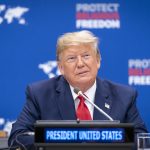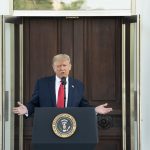The recent assassination attempt on former President Donald Trump by Thomas Matthew Crooks has taken yet another bizarre twist, raising concerns that this incident might not be as cut and dried as it appears. Republican Representative Mike Waltz from Florida is leading the charge, sounding the alarm bells over the potential foreign connections linked to the 19-year-old shooter. While Crooks’ actions at a rally in Butler, Pennsylvania, resulted in chaos—one fatality and multiple injuries—the unanswered questions surrounding the attack are almost as troubling as the act itself.
Waltz, a member of a House task force investigating the shooting in coordination with several federal agencies, is perplexed over the scant information extracted from Crooks’ cell phone weeks after the incident. Reports indicate that significant data, possibly pointing to ties in countries as far-flung as Belgium, New Zealand, and Germany, remain overshadowed in a cloud of confusion. This raises eyebrows about what incentivized a health care aide to adopt potentially encrypted foreign messaging applications—platforms that naturally impede law enforcement probing. It seems Crooks had a fondness for online secrecy, the kind that even the best domestic detectives might struggle to crack, making one wonder who else might be lining up to commit mischief against American leaders.
Congressman Reveals Foreign Links Found on Trump Shooter's Cellphone via @WestJournalism https://t.co/SxfqTucUdK
— cindy horswell (@chorswell) August 22, 2024
The frustrations of Representative Waltz are palpable as he lashes out against a lack of data-sharing from the FBI and Secret Service. Instead of unraveling the threads of this tangled web in real-time, it appears these agencies are opting for a “let’s sit on it and see what happens” approach. Waltz is not buying the narrative fed to the public that Crooks acted solo. This skepticism springs from a common-sense perspective: how can a 19-year-old kid without any clear motive orchestrate such a coordinated attack while simultaneously being linked to a foreign network? It’s almost as if he’s operating under the guidance of some hidden puppet master—a notion that deserves careful consideration.
In the circumspect world of investigations, it’s downright unsettling that authorities claim Crooks was the lone wolf mere days into their inquiry. How does one come to that conclusion before even cracking the case wide open? Shouldn’t every avenue be explored, especially when it comes to potential international plots against someone like Trump? With Iranian threats hanging over Trump since 2016, this situation demands scrutiny rather than hasty conclusions that leave citizens confused and concerned.
Adding fuel to the fire of this intrigue, Waltz highlights Crooks’ ability to create multiple bombs as a major red flag. The sheer capability to craft IEDs raises immediate questions about whether that kind of knowledge stems from simple online searches conducted by an amateur, or if it points to more sophisticated training or guidance. If a 19-year-old can whip up explosives like a weekend hobby, the implications call for a serious investigation rather than an off-handed dismissal of Crooks’ potential accomplices.
As the investigative dust continues to settle, the missing pieces of this baffling puzzle fit awkwardly together, challenging the narrative that law enforcement is peddling. With multiple questions swirling around motives, foreign connections, and the bomb-making capabilities of a young shooter, it’s clear that this story isn’t just another page in the news cycle. It’s an urgent wake-up call about the vulnerabilities facing not only current leaders but the Republic itself.




